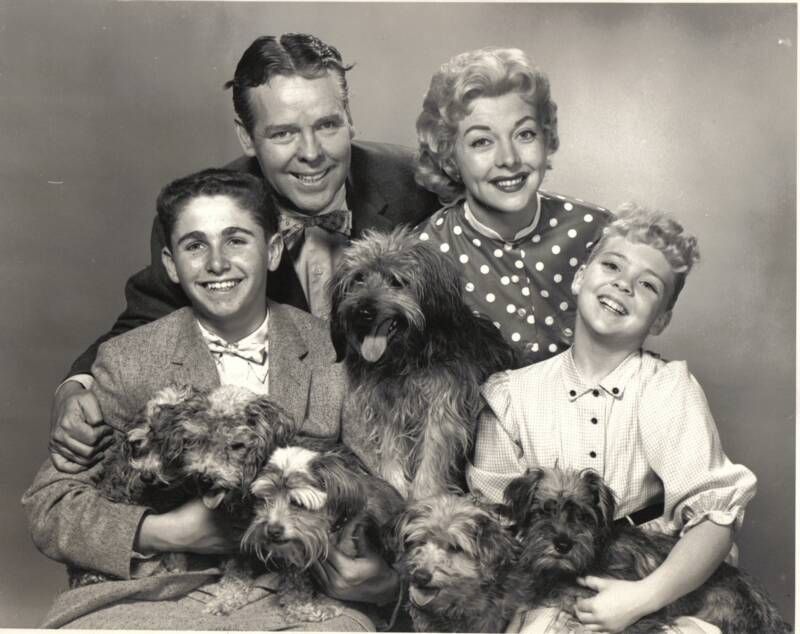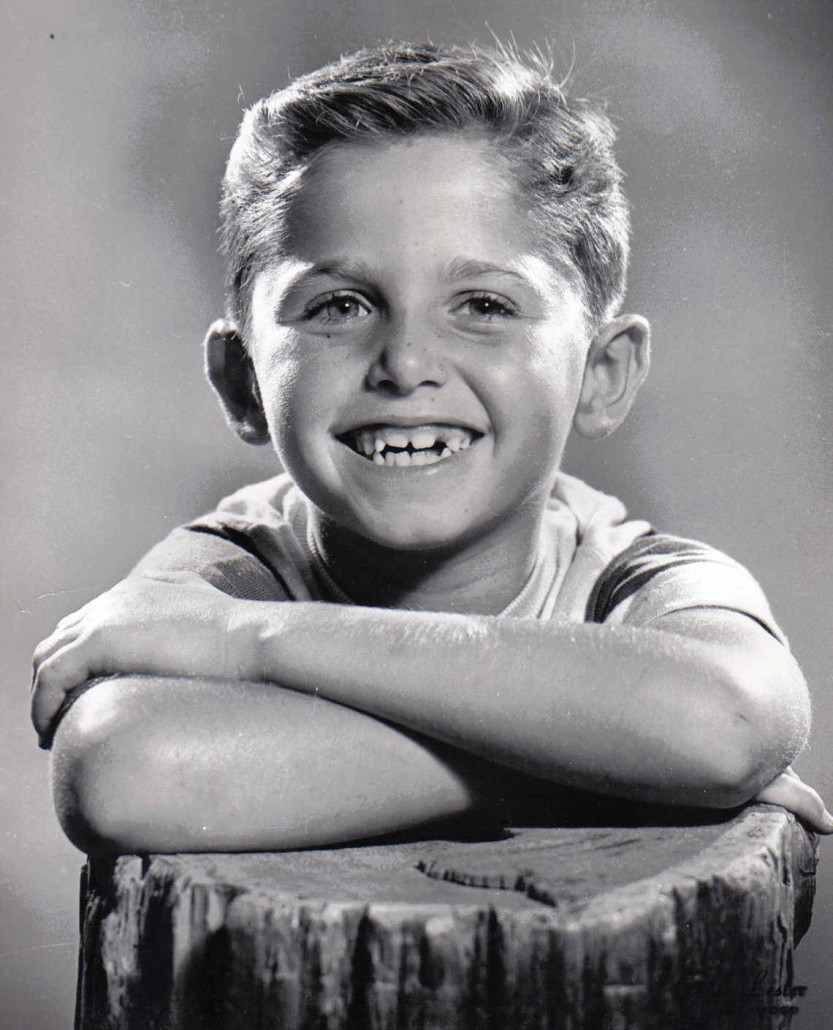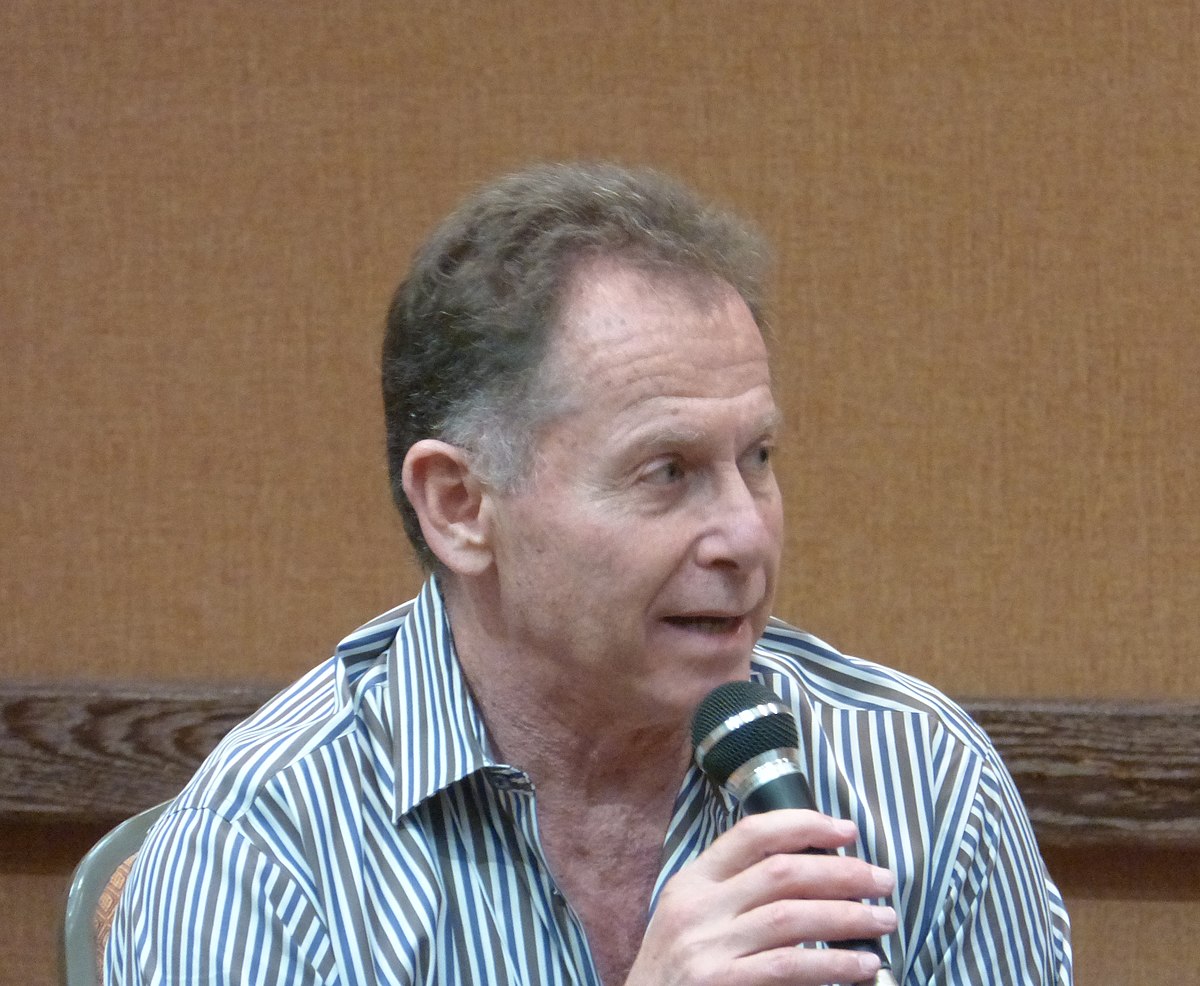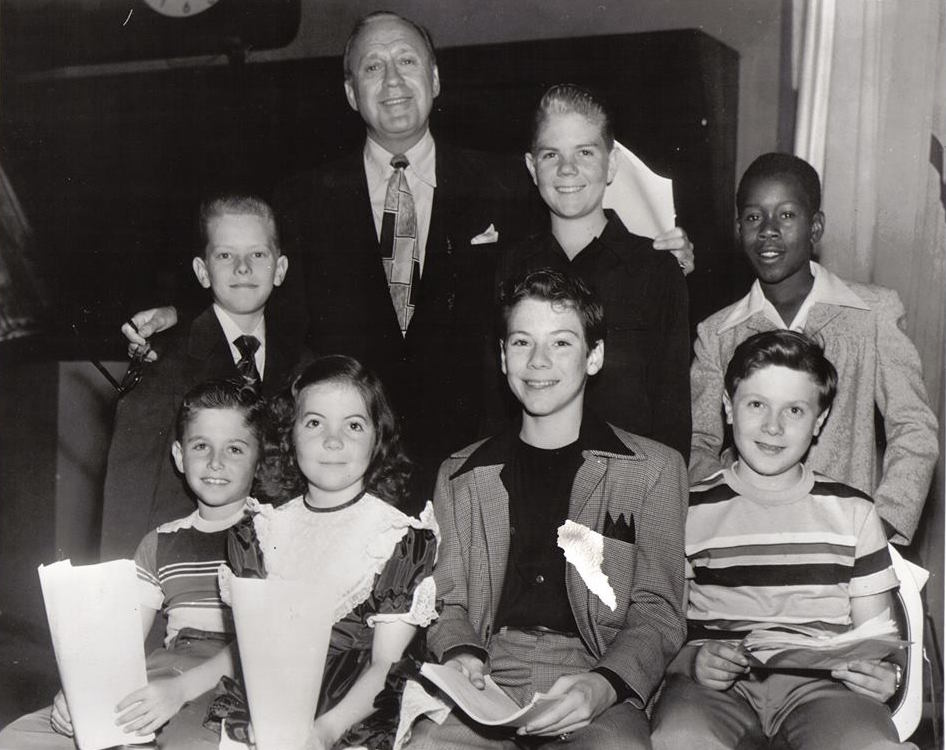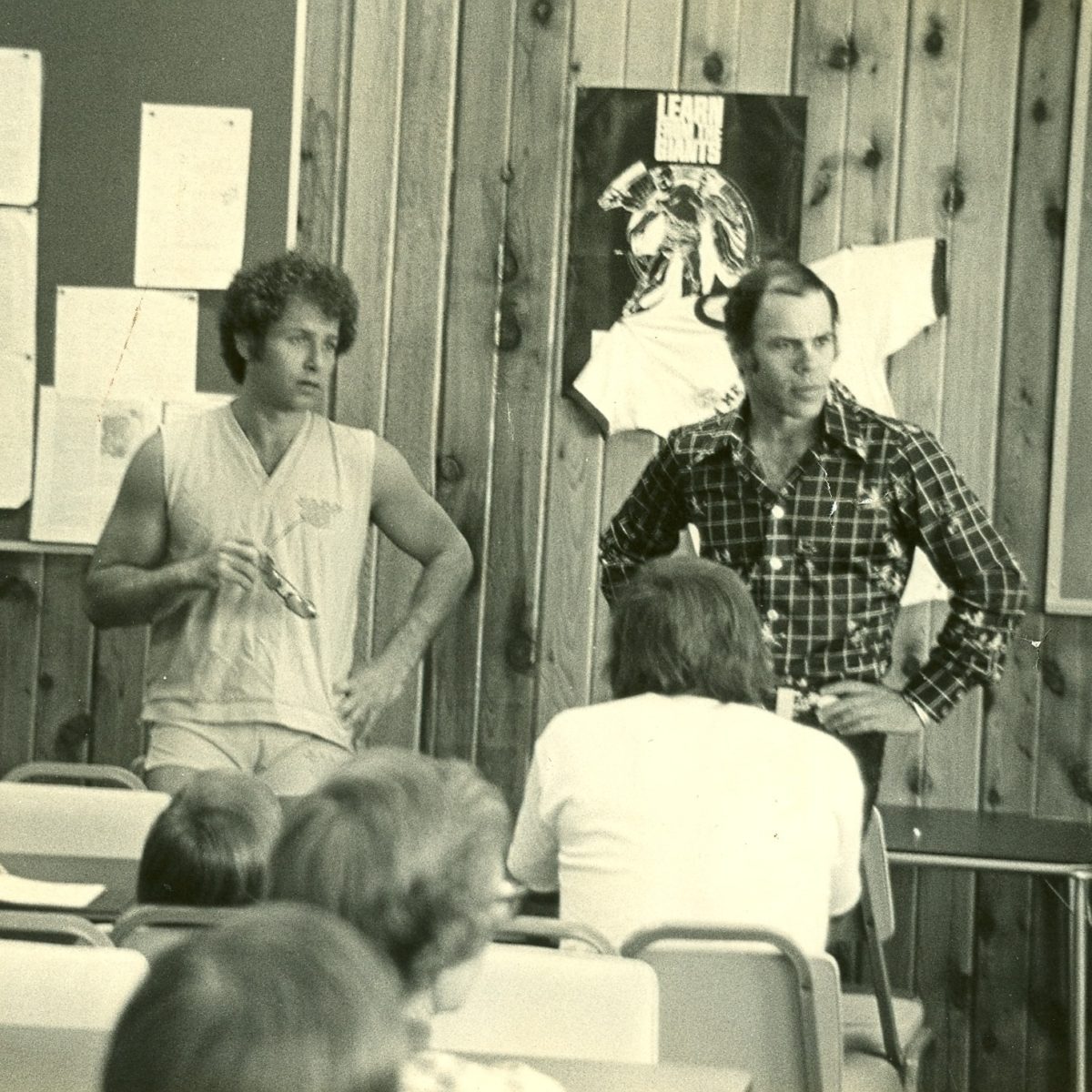Stuffy Singer Featured on the WPH Interview Series
WPH Press, 12/8/21
Stuffy Singer was inducted into the Southern California Jewish Sports Hall of Fame in 1991, having won a combined total of 16 U.S., Canadian, and world titles in singles and doubles competition. Prior to his prolific handball career, Stuffy starred in more than one thousand radio and television series, as well as movies, working alongside the likes of Bob Hope, Jack Benny, Phil Harris, Eddie Cantor and more.
Former WPH broadcaster and interviewer Ben Thum interviewed Stuffy Singer for the WPH HERE and stated, “The moment I first laid eyes on Stuffy Singer at a Pete Tyson-Fred Lewis handball camp in Steamboat Springs, Co. I was charmed by his warm and witty manner of articulating the finer points of this grand old game and I soon would succumb to his charismatic spell. Here was a man who had accomplished many goals in life, not just as a world and national champion handball giant, but as a radio and tv actor, baseball player, ping pong champion and other accomplishments too numerous to mention.
On this special edition of the WPH Interview Series, we will go From the Silver Screen to the Pro Tour to revisit Stuffy Singer’s prolific accomplishments on and off the court.
How did playing handball at the top level compare to acting in more than one thousand radio and television spots with the likes of Jack Benny, Phil Harris, Bob Hope, and Eddie Cantor?
As far as comparing playing handball to working in radio television and movies, there is no comparison at all, I was a kid, I didn’t have to put forth a lot of effort, all I had to do was get in the car and let my mother or father drive me to the studio. It did however help teach me how to phrase my words when I was arguing with the referee!
Did acting as a child prepare you for the discipline and mental toughness required to be one of the best handball players in the world in your 20’s and 30’s?
Not really, the discipline and mental toughness was decided for me by my parents and the directors, show up on time, know your lines and don’t cause any trouble you continue to work
Did you get the itch to return to show business as an adult?
Not really, I did it from the time I was about six until I was 17 so all of the excitement and the “itch” was gone by that time.
How did you get your start in handball?
I started playing two weeks short of my 19th birthday in November 1960. A bit earlier I had a choice to make between signing a professional baseball contract or taking a baseball scholarship at SC, I chose professional baseball. However, after signing a letter of intent with SC, I signed a contract with the Dodgers and was then unceremoniously told that I needed to get back into school or I was going to be drafted into the armed forces. Since I signed a contract the scholarship was off the table, I had never been a great student, so I enrolled at Los Angeles City College, which was having a handball tournament, which I entered. I lost in the first round to the guy that won the tournament (more on that in a minute). I went home and asked my dad if he would take me down to the YMCA and teach me how to play (my dad had been bedridden the results of a broken back 10 years earlier playing handball). This was enough incentive for my dad to get out of bed and go down to YMCA with me and that became his life despite his pain for the next 10 years until his passing.
Now for the guy that I lost to in that LA city College handball tournament. It’s 1968 and my wife and I are walking on the Santa Monica pier and I stopped and said to her “that’s him”. She had no idea what I was talking about and said “who?”. “That’s the guy”, “what guy,” she says? The guy that beat me in the tournament, she looked at me like I was crazy. So I walked up to the guy and asked him if he had gone to the L.A. City College and he said yes, I asked if played handball there and he said yes, and I shared with him that I remembered that he’d won the tournament and he beat me in the first round, he didn’t remember. Now at the time I was the national and World singles champion, so as I had hoped, he asked me if I still played to which I answered yes. He then said “we should get together and play sometime” and I responded “yes, I would like that”. Unfortunately we never got to play that match as I ran into him at the Hollywood YMCA a couple of weeks later and he had already found out that I was playing more than just a little.
 When did you decide to dedicate yourself to the sport?
When did you decide to dedicate yourself to the sport?
After playing daily for two weeks, it seemed like this was the perfect game for me and I decided that I was going to become the best player in the world and set a schedule for myself, as absurd as that may sound. At that time I set goals locally, regionally and nationally for the next seven years, which held true for the first five years and was then interrupted by my first knee injury and surgery. I was focused. I was committed.
Did you have a coach that helped to develop your game as a young player?
I had two main coaches, my father Marty Singer, who basically taught me the game, including sitting in the gallery with me and trying to understand why I was having so much difficulty figuring out where the ball was going to end up (the geometry of the handball court was completely foreign to me). Then the great Jimmy Jacobs, who taught me when and why to do things, not how. Also, because of Jimmy’s influence in Los Angeles and the Hollywood YMCA, the average player was much better and much more knowledgeable than most any other place in the country and all of those people were very generous with their time and coaching.
I can give you two examples of Jimmy’s wisdom and style; I’d just gotten to the semifinals of the men’s national open in 1964 and was still having difficulty with balls hit to the ceiling and my judging exactly where the back wall was. Sometimes I was too close to the wall and sometimes I was too far away. So I presented the problem to Jimmy and he asked me “when the ball goes to the ceiling where is it going to end up?” I answered “to the rear of the court.” He asked “every time?” And I responded “yes every time”. He then said and I can hear him saying it today, “you’re playing it like maybe this time it’s not going to make it”. He then said, “what I’m going to share with you is an adjustment that you can make tomorrow, it doesn’t require any additional skill. The second the ball is hit to the ceiling I want you to immediately run hard to the rear of the court and stop and wait, if it’s long you push off the back wall and take the ball moving forward, and if it’s short you move forward and likely stroke the ball back to the ceiling.” You see I was drifting on the ball as most beginners do as opposed to making a commitment. And, he was correct, it was an adjustment I was able to make the next day and forevermore.
Second example, it’s now the semifinals of the 1968 national tournament and I am playing an incredibly hot Texas player and barely win the first game 21-20. This guy was a great shooter and he was having a very hot day and laying the ball down with everything that he had. Jimmy came down from the gallery and said to me that it seemed like the guy is very hot to which I agreed and he asked me to make two very simple changes; 1) change the angle on my three wall serve; 2) when it’s time to end the volley end it on the left in front of myself as opposed to the right. Net result, 21-2.
Was there a player that inspired you to dedicate yourself to handball?
I had been playing for about six months and was a promising beginner who had the opportunity to play with Jim Jacobs a couple of times a year when he would come in from New York. On one of these visits he took me to the apartment that he kept in Los Angeles and showed me some old handball films of the previous generations’ great players in action, former national champions such as Ken Schneider; Gus Lewis; Sam Haber; Bob Brady, Johnny Sloan and a very young Jim Jacobs. What I discovered was something that I did not get out of “Ace” magazine, they made mistakes also. That is what convinced me that my objective of becoming the best was possible, they weren’t perfect either.
You were a champion ping-pong player, city tennis champion in L.A., professional baseball player at 19, all-league football quarterback, and surely other sports. What made you choose handball?
First a little more clarity: I played ping-pong from the age of 18 to 20 and won the California State, Arizona state and Pacific Coast championships and got to the round of 16 in the national men’s open division tournament where I lost in five close games to a former national men’s champion. I stopped playing table tennis in 1962 in order to dedicate myself to Handball. I picked it up again about seven years ago and became one of the top 2 or 3 over age 70s. I then lost the ability to play after total shoulder replacement on my right arm about five years ago, so a year ago I decided I was going to try to learn how to play with my left hand, something that I thought would be relatively simple as I had a pretty good left hand playing handball. What a surprise, converting to my left hand has been one of the more difficult things that I ever had to do. A couple of years ago I was inducted into the California Table Tennis Hall of Fame, likely based on what I did in the early 60s, certainly not what I’m doing now.
I won the Los Angeles city tennis tournament 18 and under division when I was 15 years old after taking half a dozen lessons at the Los Angeles tennis club. I was not a great tennis player but what I learned to do was keep the ball in play and run the ball down and I beat a lot of players that were better than I was but would get frustrated when the ball kept coming back and would eventually make mistakes.
Baseball we already talked about. Regarding football, I was a smart, quick, frightened, small (5’ 3” and 130 pounds) QB behind a 300lb line and a 230 lb. backfield, enough said. Handball was perfect for my skill set.
Did you have a handball hero?
Jimmy was my handball hero, he was as fast as the fastest, as strong as the strongest, as smart and disciplined as the smartest and most disciplined. Then there was the choice of shots (percentages) and oh those hooks! He also has the best eyesight I ever saw, an attribute that is not talked about much but is consistent with every great athlete. Even after I became a great player, it wasn’t an issue of whether I was going to win or lose, it was whether I could avoid being embarrassed.
Could you describe the feeling of winning your first national 4-Wall singles title in 1968?
7 1/2 years of total dedication. Wow, unbridled euphoria. That 7 ½ years included my first major knee surgery (followed by 2 more knee and 2 Achilles surgeries. All told, five major surgeries in an 11 year open singles career).
How did you prepare for handball tournaments?
In the beginning I just played, whoever I could get with the focus to play people who were better than I was. Of prime importance was always trying to do the right thing, not to do things just because I can get away with them at the level I was playing at the time. Remember, my focus was to become the best. I also started doing a lot of practicing by myself, sort of like going to a driving range practicing different shots with different length clubs; different types of serves, ceiling shots overhand and punch to the ceiling, straight wall kills and pass shots, back wall kills and pass shots, three wall shots from the left and from the right, both hands, left and right, overhand Sidearm, underhand. This was not only practicing execution, but also learning what to do and how to correct things during a match when I wasn’t making my shots.
The practicing was something I could do relatively soon after surgery, even though I couldn’t yet play. Fortunately when I was able to play, a couple friends brought their game down to whatever level was needed in order for me to be able play without hurting myself and without having my ego be involved. As time went on and I got older I still would practice to sharpen up but maybe only about 10% as much.
You stated in your 2008 interview with Ben Thum HERE that for one match Jimmy Jacobs, at the age of 46 and ten years after he competed regularly, could beat anyone in the game. What made Jimmy Jacobs so special?
There’s a little literary license in Ben’s statement, what I said was that I played Jim approximately two weeks before the 1976 national tournament that I thought it was going to win and for three quarters of the first game he was still the best player in the country, then his age and lack of competitive play took over and I was able to win. That was the only time I ever beat Jimmy playing handball. I’ve already described his physical and mental attributes above so there’s no need to do it again
Your handball prime coincided with the start of the pro tour in the early to mid 1970’s, which bridged the Paul Haber generation with Fred Lewis and eventually Naty Alvarado, Sr. Of course, there were so many more exceptional players at that time as well. It must be very special to look back on that time and to have been a part of the inception of the pro tour.
It was a great time in my life, one of the best. Playing against each other seven or eight times a year we all got better and better. Prior to the pro tour basically we played each other once a year. We got to know each other personally as well as great handball players and there was a lot of camaraderie among most of the players.
You had nine major operations during your 16-year handball career. Were these injuries from on-court action, or old injuries that flared up from playing football and baseball?
The original knee injury was a football injury in high school, which I reinjured slipping on a wet court in early 1966, that was the beginning. Only one other injury occurred on the court in a Pro doubles tournament in 1971 where our two opponents got tangled up with each other, tripped and fell into me from the side, a football injury in a handball court. Once a part of your body is injured, the tendency is to favor that part of the body. That’s what happened with my knees, my Achilles, my hips and shoulders. Relatively intelligent person.
How were you able to overcome those surgeries to maintain your status as one of the game’s elite?
With each surgery came a long period of rest and rehab as well as the loss of some physical ability. Because of this deterioration, I became more and more focused on making the other player do things that they didn’t want to do. So my body rested, I became smarter and the result was I was still able to stay more than competitive with the best in the Game. I got smarter, something that happens to all players except it usually happens after they’ve lost their physical ability. I still had plenty of ability and took advantage of the fact that I had the good fortune of having to adapt my game long before I was one of the older guys.
I always lacked natural physical stamina, which is why I worked so hard at trying to build it up and developed the type of game where if I was tired my opponent was more tired. It wasn’t until I was 50 years old that I discovered that for all those years I had been suffering from asthma and it wasn’t a lack of conditioning, we should’ve known earlier.
According to the Southern California Sports Hall of Fame HERE, you won a combined total of 16 U.S., Canadian, and world titles. Is there a title that meant more to you than the others?
They were all important to me, but the 1968 national singles tournament was head and shoulders more meaningful to me. It was what I had targeted in 1960 and is what I had focused on for all those years.
What was your most memorable match?
There’s a bunch of those, what strikes me right now is the 1968 Canadian nationals singles final against Paul Haber; two Pro stop wins against Naty Alvarado Sr. at ages 36 and 38 years old; and the national open doubles final with my dear friend Marty Decatur against two future Hall of Famer’s Vern Roberts and Dave Dohman, almost 10 years younger than us with me in my late 30s and Marty in his early 40s.
Every athlete suffers difficult losses. Is there one that still haunts you?
No question, my loss in the semifinals national singles tournament in 1973 to my close friend Steve August was the worst, I still can’t get it out of my head
How would you describe your style on the handball court?
A combination of David Chapman; taking people out of their game; and Jim Jacobs with good physical abilities and discipline but not as good as Jim’s.
Did you change your style based on who you were playing? If you were playing Naty Alvarado, Sr., for example, would you play him differently than you played Fred Lewis?
Absolutely, Naty was so physically talented, but he could be forced into occasionally making errors, while Freddie never made errors, never got tired and was always trying to take the right shot. Both of them were great fun to play but for completely different reasons.
Who gave you the toughest matches on the tour?
The people that were toughest for me were Naty; Fred; Dennis Hofflander and Paul Haber, I had good records against all of them but all were very tough. In addition, players like Russo, Pfeifer, Graybill, Muck, August and Yambrick were all tough, but for different reasons, it was quite a group, an amazing era in handball when all the players mentioned felt they were going to win the tournament. There’s a big difference in intensity and focus when you feel you’re going to have to play tomorrow as opposed to if you’re planning to get to the quarters of the semis.
Did you have a favorite tournament?
The national tournaments held in 65, 69 and 73 at the University of Texas Gregory gymnasium with the amphitheater court that sat 1500, thanks to Pete Tyson and Dick Roberson
Was there a player you considered to be your greatest rival?
Probably Paul Haber and Fred Lewis, I was pretty old by the time Naty came around
In 1971, the U.S. government sponsored a tour of Germany and England with you and Jimmy Jacobs, giving exhibitions to clinics to Air Force personnel. What were your greatest memories from this tour?
Actually, there were three of us, Jimmy, Marty Decatur and me. This was all based on four wall, as the airbases in Germany and England all had at least 1 four wall court. We went from airbase to airbase, each of which appear to be exactly the same in exactly the same kind of car on exactly the same kind of roads to exactly the same kind of accommodations. We were gone for two to three weeks and we were hosted by generals at each base and treated royally. While in Berlin, our host General Candy Halverson (look him up regarding the Berlin airlift), directed us to an area of the Berlin wall that had a chance of not being guarded by either the East or the West where we proceeded to start to try to play handball against the Berlin wall on dirt with rocks for the floor. There were landmines and eastern side of the wall and we were afraid that if one of us hit the ball over the wall all that we might hit one of the plungers which would generate an explosion which might very well start world war three. As luck would have it, I mistakenly hit the ball over the wall in the film that was being taken of our “match” showing all four of us immediately turning and running away from the wall like little kids that had broken a window. When there was no explosion we walked back to the wall we had mistakenly been playing and the guard from the eastern sector got off of his perch, walked out into no man’s land, picked up the ball and threw it back over the wall for us.
While the tour itself was pretty boring, we all had a great time with each other’s company and after Germany and England, we flew to Paris where we did all the touristy things, had some great food and continued to giggle and laugh like little kids with Jimmy being the silliest of us all.
After playing at the top of the game for 20 years, how difficult was it for you to step away from the tour?
Stepping away was not that difficult, what was difficult was continuing to get injured, continuing to have surgeries and continuing to have to rehab, that was difficult. When I finally decided that I was done it was actually pretty easy.
What do you miss most about playing pro handball?
The guys, the competition and in the end that feeling of accomplishment!
Did you continue to play handball after stepping away from the tour?
No I didn’t, I was not able to even play and have fun without an ungodly amount of pain, especially in my shoulders and back without anti-inflammatories. Once every four or five years somebody would ask me to play in the Masters tournament so I was willing to take the meds for a couple of weeks, and stand over on the side looking dangerous while all my partners beat the crap out of people.
Which players do you enjoy watching in today’s game?
The players I enjoy watching the most are Paul Brady and in the past Tony Healy, as both of them play intelligent style game mixed with great power, speed and shot making ability.
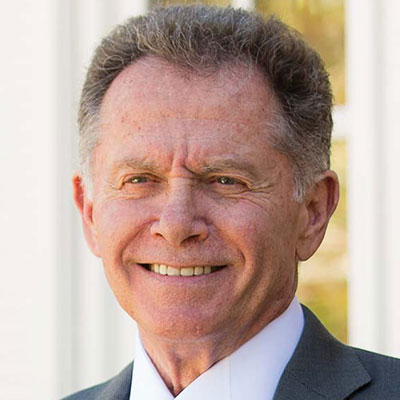 You have been in the financial service industry for decades, winning the San Fernando Valley financial services representative of the year in 2004. Does your work in the financial sector quench your thirst for competition?
You have been in the financial service industry for decades, winning the San Fernando Valley financial services representative of the year in 2004. Does your work in the financial sector quench your thirst for competition?
I’ve been told that I am in the top 1/10 of 1% of all the financial services professionals in the country, having been past president and CEO of the Forum 400, the pre-eminent group of financial professionals in the country. I tell you that because the process of success, be it entertainment, sports or business is all very similar.
How would you compare the style of game of the pros during your era to today’s top players?
The current great players, with the exception of Paul Brady, who plays a well rounded game using the best of both today’s players and yesteryears, the game has reverted to a mostly all offense style. I see some fabulous talent, some of which could be much better with a bit more focus on intelligent defense and choice of shots. I believe Brady uses his abilities in all these areas to dominate for most of the last decade and the others should copy his total game, not just his offensive skills.
Who would you have liked to have played from today’s game when you were in your prime?
Paul Brady, I really enjoyed playing the best and to explore which of us could impose our will. Secondarily, trying to compete against Killian’s speed and Lenning’s amazing array of shots would have been great fun.
Word Association
WPH: a much-needed addition to the handball world.
Paul Brady: absolutely one of the best of all time, very difficult to compare eras
Jimmy Jacobs: the best of all time in my opinion
Naty Alvarado, Sr.: just a fraction below Jimmy if at all
Killian Carroll: so fast, (Muck), could be even better than he is. Still young and could end up as being one of the best of all time
Fred Lewis: one of the all-time greats whose grinding style of play suffered when we went to an 11 point tiebreaker
1968 Jim Jacobs & Stuffy How to Play Handball with Bob Kendler & Joe Shane, courtesy of USHA HERE
1968 4 Wall Nationals MOS Final Stuffy Singer vs. Ray Neveau, courtesy of USHA HERE
The Birth of Professional Handball, as told by Stuffy Singer HERE
Photos courtesy of USHA and Stuffy Singer
Thank you to Stuffy Singer for sharing his memories and insights.
David Fink
WPH Senior Writer










